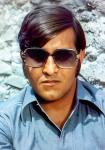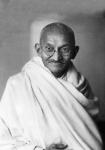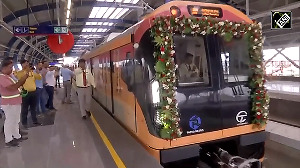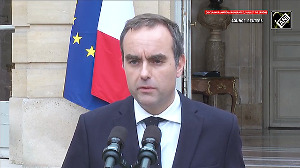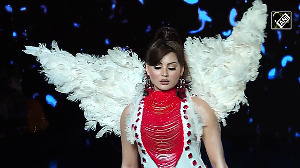Singur, the site of the Tata Motors car project, was in the political limelight in 2006 as the issue of farmland acquisition snowballed into a major controversy in West Bengal where the ruling Left Front, relying on Chief Minister Buddhadeb Bhattacharjee's brand value, focussed on industrialsation.
Ever since the Tata Sons chairman Ratan Tata announced his 'dream car' project at Singur in May, a movement spearheaded by main opposition Trinamool Congress rocked the state although the Bhattacharjee government remained firm in going ahead saying it would give fillip to industrial development.
The agitation over farmland acquisition for the car project took an unsavoury turn in the assembly where Trinamool Congress ransacked furnitures and traded blows with CPI-M and members.
The rampage in the House took place when Trinamool chief Mamata Banerjee was prevented from going to Singur to protest the land acquisition.
Social activist Medha Patkar joined the stir against farmland acquisition for the Tatas' project and BJP threw its weight behind Trinamool Congress forcing Congress to distance itself from TC.
When the state government completed land acquisition for the Tata project defying protests, the TC supremo went on an indefinite hunger strike.
The announcement of the Rs 1 lakh car project by Tata Motors greatly impacted the industrial climate of the state, which was long perceived to be non-conducive for doing business.
The state government was successful in attracting the Tatas, which had almost decided to locate the plant elsewhere, to the state for setting up the ambitious project involving an investment of Rs 1000 crore.
According to the state government, land required for the project at Singur, nearly 1000 acre, would be handed over to Tata Motors by the end of 2006 and the company planned to roll out its first car in 2008.
The other important development in the state was the formation of a union in the information technology sector, the first of its kind in the country.
Promoted by CITU, the union christened West Bengal IT Services Association proposed to look into the demands of professionals working in the sector.
However, this had not gone down well with the IT and ITES companies who fear this would be detrimental to the image of firms.
An important political milestone during the year was the return of the Left Front to power with an over two-thirds majority.
The Left bounced back with 235 seats reducing the opposition to a miniscule minority in the 294-member assembly, belying the cries of rigging.
The Front held sway in subsequent by-polls to a few Lok Sabha and assembly seats.
Trinamool Congress barely managed to get the recognised opposition status in the assembly with 30 seats.
The year also saw the death of veteran Congress leader A B A Ghani Khan Chowdhury and CPI(M) state secretary and politburo member Anil Biswas, which left a void in the political scene.
The state witnessed violence by Maoists who struck from time to time in West Midnapore, Purulia and Bankura districts bordering Jharkhand killing a number of CPI-M leaders and police personnel.
Suspected ULFA militants re-surfaced in North Bengal triggering a blast in a train at Jalpaiguri district, which claimed seven lives.
Several corporate entities like HSBC and IBM have started outsourcing jobs at Salt Lake, while real estate developers like DLF have put up huge infrastructure for housing IT and ITeS companies at Salt Lake.
After remaining closed for almost eight years, the gates of Dunlop India Limited re-opened at Sahagunj in the state under the management of the P K Ruia group.
The company, once a renowned manufacturer of tyres, planned to roll out its first product later during the month.
The other area that saw a lot of action was real estate. Several real estate developers have announced projects to set up townships.
Indonesian industrial groups Salim and Ciputra have joined hands in setting up townships near the metropolis.
The state's sports scene was dominated mostly by off-the-field activities - Sourav Ganguly's ommission from the Indian cricket team for the better part of the year and the high-voltage election to the Cricket Association of Bengal that saw even the chief minister make an unsuccesful bid to dislodge Jagmohan Dalmiya as CAB president.
